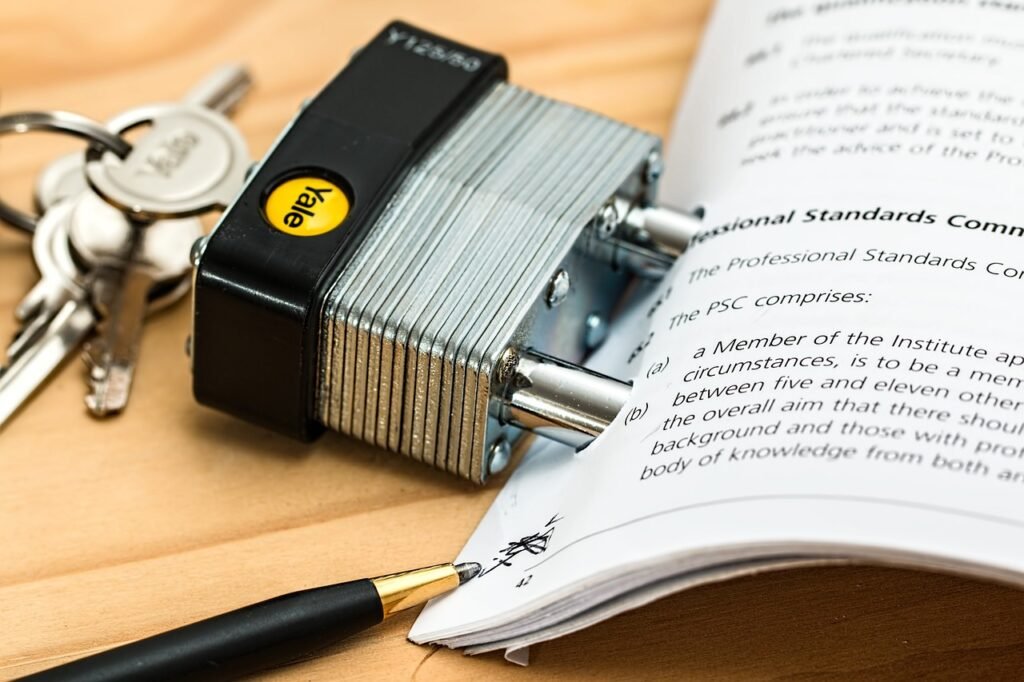However, it’s possible to let go of the practice of verbal agreements or contract templates while doing international business- particularly in fast-expanding countries like China. Probably, you are so eager to ship your product or start your new deal, and you believe everything has been agreed upon in conversation. These are some things that require risk, and putting them into writing settles almost all issues. Be it with a Chinese partner or with any other international business transaction, a well-written contract is essential in protecting your interests and matters related to making the agreement run smoothly.

Four reasons why you always adopt a tailor-made contract while entering into contracts with Chinese partners:
- To Set Forth What Has Been Agreed Upon
Clarity is the supreme in business. When doing business, especially across borders, there is a need to have certainty on the agreement each one is making. A tailor-made contract will represent the agreed-upon terms in writing, leaving nothing open to doubt.
Business habits, indeed, work in a manner predictable. This is why a custom contract does the magic. Includes those arranged on product quality, quantity, payment terms, shipment date, warranties entitlements, and insurance clauses. Whereas standard templates would miss some details inherent in your transaction- thereby leading to confusions later on.
For one, there may be a standard contract that fails to comprehend the topic product’s specifications as discussed or even the exact payment schedule you’ve agreed upon. Customizing a contract to the situation thus ensures both parties are on the same page, eliminating the possibility of disputes later. - To Avoid Misundersandings
Entering agreements with international partners will undoubtedly complicate things by introducing cultural and language differences. Even if both speak the same foreign language, the end agreement may end up being poorly translated and very vague on the terms, creating problems.
This misinterpretation can be avoided by having a well-translated written contract both in your language and in your partner’s language. Your Chinese partner can, however, end up depending on an inaccurate translation, which can cause misunderstanding about the terms he agrees with.
Take payment deadlines, for example. If a payment deadline does not indicate any penalties for late payments, the buyer has every chance not to pay exactly on time. On the contrary, a provision stating that late fees apply will help clarify expectations and force the buyer to fulfill his obligations toward his timeline more realistically and with less risk of delay, especially important when dealing with different time zones and business practices.
Being clear on the specified schedules for payments, quality of shipped product, and shipment details would avoid very serious confusion later. - Counterparty Persuasion for Compliance
One of the biggest advantages of having a bespoke contract would be the clarity with which expectations and penalties for failure would be set out. A strong contract, in this sense, should coerce your Chinese counterpart into adhering to terms.
Properly construed, the Chinese company knows what it must do to fulfil the terms and what will happen if the Chinese company fails to fulfil them. Cross-border contracts are never easily enforceable; hence this is very important in international business. The contract gives the other party a very good reason not to risk a lawsuit.
So, when your contract is wider and better drafted than that of any other competitors, your Chinese partner is likely to choose your contract over the rest. If they know not adhering to your terms could lead to expensive legal action, they would put more into meeting your specifications and timelines.
View it this way: if you have a clear contract, you will be one up on other suppliers who might have a much worse contract than yours. The better the contract, the greater the likelihood that your Chinese partner will see the value in fulfilling his commitments to you before all others.
To Be Enforceable Against the Counterparty
A good contract must not only be clear but also enforceable. Should something go wrong, you want a contract that is enforceable in court or arbitration proceedings.
With an appropriate agreement, all areas likely to be sources of conflict will be addressed before something goes wrong. Avoid open-ended interpretation of compliance failure by stating plainly what and how things will happen when compliance fails. It also ensures that the contract remains legally binding on all parties.
Another issue that is always overlooked but which is of great importance is confirming that the person who signs the contract on behalf of the other company has the authority to sign it. Without that, your contract might be non-enforceable. Besides, in an international transaction, one must stipulate the law of governing and the forum for arbitration to the dispute. This determines where and under what jurisdiction legal matters will be handled and can save time to complications when disputes arise.
Given the peculiarity of international transactions, it is important to see qualified lawyers to draft a contract that meets local as well as international legal requirements. Otherwise, your contract may be declared invalid by a court, leaving you without recourse when the unexpected happens.
Conclusion: Safeguard Your Business with a Customized Contract
Conduct business in a foreign country like China, and it becomes important that the contract embodies all the special terms and conditions related to the agreement. Using generic templates or oral agreements is extremely risky and could land you with serious misunderstandings, delays, or legal problems.
Such a customized contract not only defines up the agreed-upon terms but also acts as a tool to avoid confusion and incentivization, and guarantee enforceability. Thus, by preparing a clear and comprehensive contract, you would take the necessary measures to reduce risk and guarantee long-term success for your business.
Well, all that is said in brief, but it’s actually a pretty good, well thought out contract, just not a formality-it can be an important step toward protecting your business and ensuring the smooth, mutually beneficial partnership with your Chinese counterpart. You may have to take an experienced lawyer with you-for example, one specializing in cross-border contracts-for the many complications of having a legal business.
About the Author:
Sylvia Zhang is a qualified CPA, seasoned business lawyer, and now resides in Beijing. She has spent nearly 20 years advising a great number of foreign entities whose operations relate to China about investments, transactions, compliance, and regulatory matters within or pertaining to the Chinese jurisdiction. In addition, her work tackles a wide range of legal issues pertaining to daily operations under Chinese law.







Leave a Reply